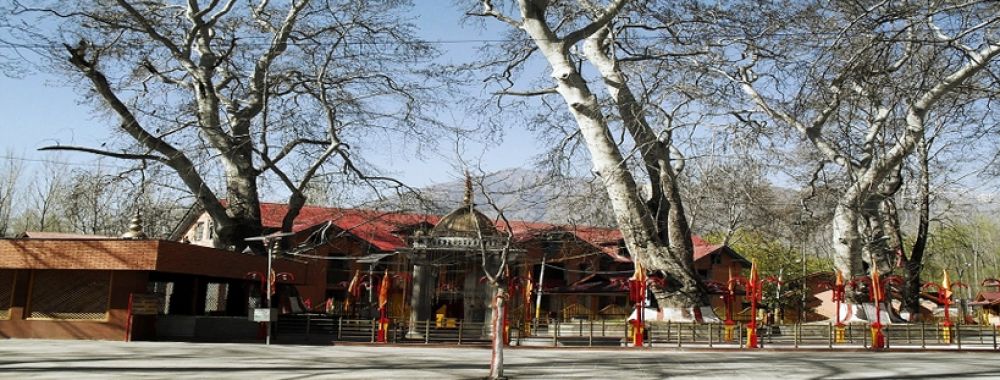

The serene and spiritual site of Khir Bhawani Temple, situated in Sonmarg, Kashmir, has long been a symbol of the region's rich cultural tapestry and religious harmony. Dedicated to the Hindu goddess Kheer Bhawani, this sacred temple is revered by devotees across the country, making it an important pilgrimage site. The temple history dates back centuries, deeply embedded within the lore and traditions of Kashmiri Pandits, the indigenous Hindu community of the valley.
According to local beliefs and historical records, the temple's presiding deity, Goddess Kheer Bhawani, appeared in the form of a sacred spring. This divine manifestation is believed to change colors with the variations in the devotees' fortunes. The Rajput King Maharaja Pratap Singh in the early 20th century is credited with renovating and elevating the temple's infrastructure, which has further solidified the temple's status as a significant religious hub. The temple has survived the tumultuous history of Kashmir, standing as a witness to both harmony and conflict in the region.
The most important event at Khir Bhawani Temple is the annual festival, which occurs in the Hindu month of Jyeshta (approximately May-June). During this festival, thousands of pilgrims from various parts of India come to offer respect and prayers to the goddess. It's a time of vibrant rituals, fervent worship, and communal harmony, showcasing Kashmir’s true spirit. The festival has helped to promote tourism in the region, attracting visitors not only for religious purposes but also for experiencing Kashmir's unique cultural heritage.
Tourism at Khir Bhawani Temple has encountered several challenges, particularly during periods of political instability in Kashmir. Despite these struggles, the allure of the temple's spiritual ambiance and the idyllic beauty of Sonmarg continue to draw visitors. Tourism authorities and local stakeholders have taken steps to ensure the safety and improve the experience for pilgrims and tourists alike.
In recent years, there has been a concerted effort to boost ecotourism and sustainable practices within the broader tourism strategy for Sonmarg and the temple. Cultural tourism has also gained momentum, with visitors increasingly interested in immersing themselves in local customs and traditions. Moreover, the introduction of regional festivals, craft fairs, and temple-led community events have become significant attractions.
Improved transportation networks and development in infrastructure have made Khir Bhawani Temple more accessible to the masses. Quality accommodations, ranging from budget lodgings to luxury resorts in Sonmarg, have also been developed. These advancements have significantly contributed to the ease and comfort of touring this sacred destination.
The future of tourism at Khir Bhawani Temple holds promise, with the region's peaceful progress and development initiatives. Efforts are being made to balance tradition with modernity, providing visitors with a holistic experience that resonates with the sanctity of the temple while embracing contemporary tourism trends. The temple and its surroundings remain an emblem of Kashmir's resilience and the enduring allure of its spiritual and natural wonders.